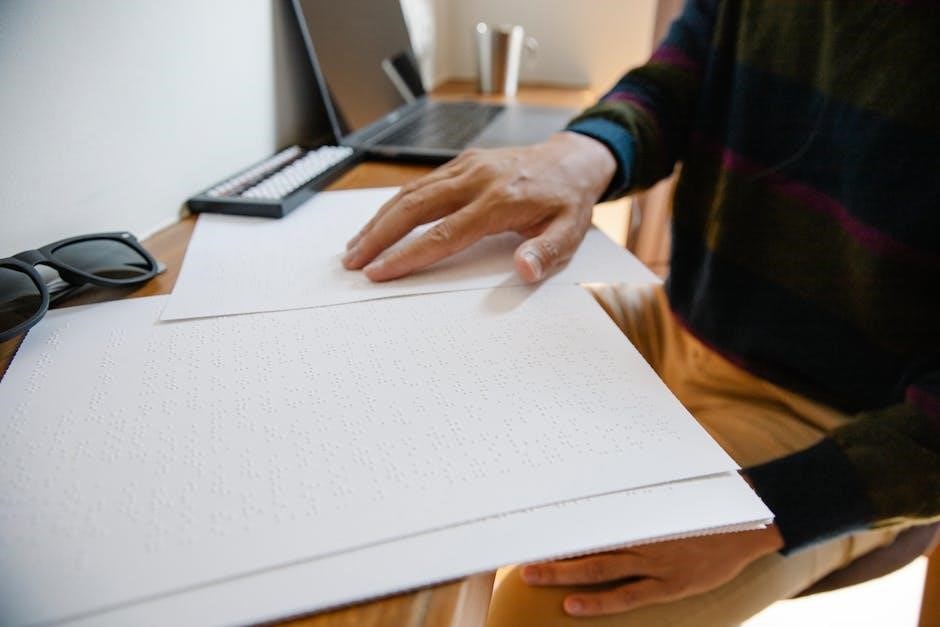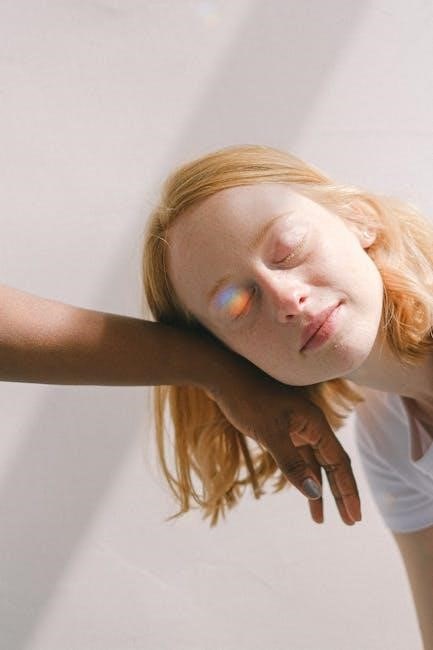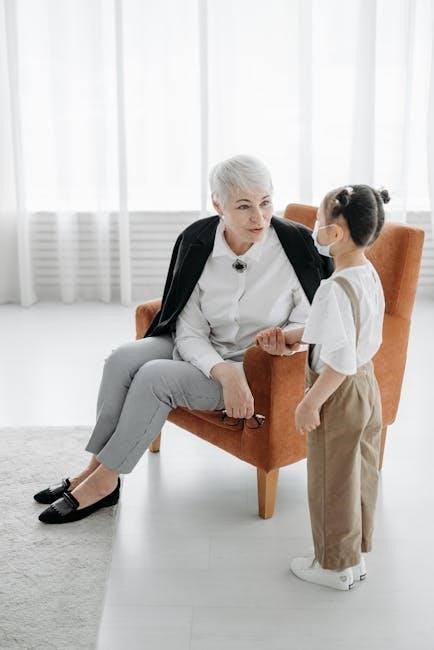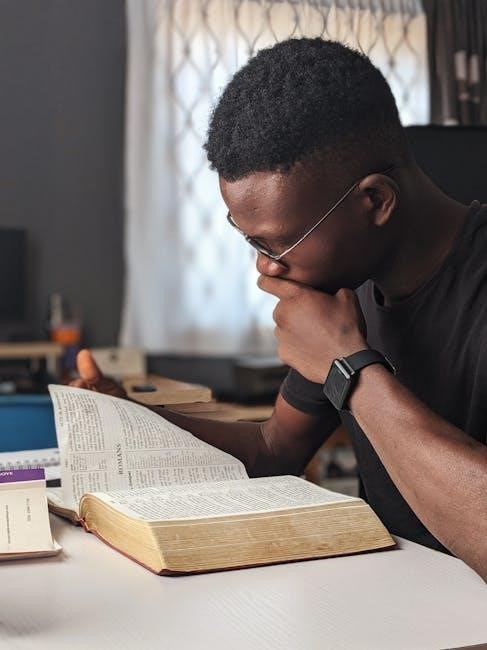Understanding the Black woman involves exploring her complex experiences‚ shaped by history‚ culture‚ and societal expectations. It requires empathy‚ self-reflection‚ and a willingness to dismantle stereotypes.
The Importance of Mutual Understanding in Black Relationships
Mutual understanding is crucial in fostering healthy Black relationships‚ addressing historical dynamics‚ and dismantling stereotypes. It involves open communication‚ empathy‚ and acknowledging the unique challenges faced by Black women. By understanding their resilience and the pressures of societal expectations‚ Black men can support their partners more effectively. This mutual respect fosters a foundation of trust‚ collaboration‚ and shared growth‚ ultimately strengthening the bond between Black men and women.
Historical Context: The Impact of Slavery and Jim Crow on Black Dynamics
Slavery and Jim Crow deeply shaped Black relationships‚ fostering dysfunction rooted in oppression. Slavery disrupted family structures‚ forcing Black women into roles that prioritized survival over traditional dynamics. The dehumanization of Black people and the imposition of racist‚ sexist ideologies created lasting scars. Jim Crow further entrenched these divides‚ reinforcing power imbalances and mistrust. Understanding this history is vital for healing and rebuilding authentic connections between Black men and women.

The Strong Black Woman Archetype
The Strong Black Woman archetype embodies resilience and self-reliance‚ often rooted in historical survival strategies. While empowering‚ it can mask vulnerability‚ creating unrealistic expectations and emotional burdens.
Origins and Evolution of the Strong Black Woman Stereotype
The Strong Black Woman stereotype traces its roots to slavery and Jim Crow‚ where resilience was essential for survival. Over time‚ it evolved into a cultural expectation‚ often glorifying sacrifice and self-reliance. While it embodies strength‚ this archetype can mask vulnerabilities‚ perpetuating the notion that Black women must endure without support‚ leading to emotional burdens and unrealistic societal demands.
The Double Burden: Strength and Vulnerability in Black Women
Black women often navigate a dual reality‚ balancing strength with hidden vulnerabilities. Societal expectations demand resilience‚ yet this masks their susceptibility to emotional and mental strain; The pressure to conform to the Strong Black Woman archetype can suppress expressions of vulnerability‚ creating a silent struggle. Recognizing this duality is crucial for fostering understanding and supporting their holistic well-being‚ allowing space for both strength and sensitivity to coexist authentically.

Misogynoir and Its Effects on Black Women
Misogynoir‚ a blend of racism and sexism‚ uniquely impacts Black women‚ perpetuating harmful stereotypes and emotional distress‚ often originating within their own community‚ affecting mental health deeply.
Defining Misogynoir: Racism and Sexism Intersected
Misogynoir is a term that describes the unique intersection of racism and sexism faced by Black women‚ creating a distinct form of oppression. It reflects the specific ways Black women experience both racial and gendered discrimination simultaneously. This concept highlights how societal structures and individual biases converge to marginalize Black women in ways that differ from other groups. Understanding misogynoir is crucial for addressing its pervasive impact on their lives and mental well-being.
How Black Men Can Recognize and Combat Misogynoir
Black men can recognize misogynoir by acknowledging the historical and systemic ways Black women face both racism and sexism. They must listen to and amplify Black women’s voices‚ challenging harmful stereotypes. Education is key; understanding how their own experiences of racism don’t erase their privilege over Black women. Allyship involves advocating for policies and practices that uplift Black women and fostering environments where their contributions are valued and respected equally.

Power Dynamics in Relationships
Power dynamics in relationships stem from historical oppression and societal structures‚ often creating an unequal distribution of power. Addressing these imbalances is crucial for fostering healthier‚ more balanced partnerships.
Historical Oppression and Its Influence on Modern Relationships
Historical oppression‚ rooted in slavery and Jim Crow‚ has profoundly shaped power dynamics in Black relationships. These systems enforced racial and gender hierarchies‚ creating lingering trust issues and communication challenges. The trauma of these experiences manifests in contemporary relationships‚ often affecting mutual respect and understanding. Acknowledging this history is crucial for dismantling its influence and fostering healthier‚ more equitable partnerships today.
Navigating Power Imbalances for Healthier Partnerships
Navigating power imbalances requires open communication‚ mutual respect‚ and a willingness to address historical inequities. By acknowledging the impact of past oppression‚ couples can work collaboratively to redefine roles and expectations. Empathy and active listening are essential tools for fostering trust and understanding. Balancing power involves recognizing each partner’s strengths and vulnerabilities‚ creating a foundation for healthier‚ more equitable relationships rooted in shared goals and respect.

Mental Health and Emotional Well-being
Black women face unique mental health challenges‚ often rooted in systemic racism and misogynoir. Prioritizing self-care and fostering resilience are crucial for emotional well-being and healing.
The Unique Mental Health Challenges Faced by Black Women
Black women often face mental health challenges stemming from societal expectations‚ systemic racism‚ and the pressure to embody the “strong Black woman” stereotype. These burdens can lead to anxiety‚ depression‚ and emotional exhaustion. Historical oppression and ongoing discrimination exacerbate these struggles‚ making it crucial to address these issues with empathy and understanding. Recognizing these challenges is the first step toward fostering a supportive environment for healing and growth.
Supporting Black Women’s Mental Health as Allies
Supporting Black women’s mental health requires active listening‚ empathy‚ and a commitment to understanding their unique struggles; Allies can create safe spaces for open conversations and encourage seeking professional help when needed. Promoting self-care practices and challenging systemic barriers are essential. By advocating for mental health resources and fostering inclusive environments‚ allies play a vital role in empowering Black women to heal and thrive. Education and consistent support are key.

Communication Strategies
Effective communication involves active listening‚ empathy‚ and verbal affirmations. Understanding non-verbal cues and expressing love through actions fosters deeper connections. Open dialogue and mutual respect are key to building trust and strengthening bonds.
Active Listening and Empathy in Building Connections
Active listening involves fully engaging with her words without interruption‚ showing genuine interest‚ and validating her feelings. Empathy requires understanding her unique experiences through her lens. By creating a safe‚ non-judgmental space‚ trust and intimacy flourish. Acknowledging her emotions and perspectives fosters deeper connections‚ strengthening the bond and encouraging open communication. This approach is vital for building mutual respect and understanding.
Expressing Love and Respect in Ways Black Women Value
Expressing love and respect involves consistent actions that show appreciation and support. Celebrating her strengths‚ being present in her life‚ and valuing her opinions foster deeper connections. Open communication‚ empathy‚ and understanding her experiences are crucial. Small gestures‚ like acknowledging her efforts and standing by her through challenges‚ demonstrate commitment. Respecting her boundaries and cultural identity strengthens trust and affection‚ creating a foundation for a meaningful and lasting relationship.

The Role of Community and Culture

Community and culture play vital roles in shaping Black women’s identities‚ fostering resilience‚ and preserving heritage. Shared traditions and collective experiences strengthen bonds‚ providing support and belonging.
Understanding the Collective Identity of Black Women
Black women’s collective identity is rooted in shared cultural heritage‚ historical resilience‚ and communal support. It reflects the strength found in unity‚ celebrating traditions while navigating societal challenges. This identity is shaped by interconnected experiences‚ fostering solidarity and pride. Understanding it requires embracing the richness of Black culture and the unique ways Black women contribute to and sustain their communities across generations.
Cultural Expressions and Their Significance in Relationships
Cultural expressions‚ such as music‚ art‚ and storytelling‚ play a vital role in Black women’s lives‚ fostering connection and understanding. These traditions strengthen relationships by creating a shared sense of identity and heritage. They also provide a platform for emotional expression and mutual support‚ enriching partnerships and celebrating the richness of Black culture. Recognizing these expressions deepens appreciation and unity in relationships.

Breaking Stereotypes
Breaking stereotypes involves challenging misconceptions and embracing authenticity. Recognizing the diversity and individuality of Black women fosters deeper understanding and healthier‚ more genuine connections.
Challenging Misconceptions About Black Women
Challenging misconceptions about Black women requires critical examination of societal stereotypes. The “strong Black woman” archetype‚ while empowering‚ often overshadows their vulnerability and diversity. Recognizing individuality and humanity fosters authentic connections and dismantles harmful narratives rooted in racism and sexism. By engaging in open dialogue and education‚ misconceptions can be replaced with understanding and respect.
Creating Space for Authenticity and Individuality
Creating space for authenticity and individuality involves moving beyond stereotypes and embracing the unique experiences of Black women. It requires fostering an environment where their voices are heard and their diversity celebrated. By encouraging open dialogue and validating their truths‚ we allow Black women to express themselves freely‚ transcending societal expectations and embracing their full humanity. This fosters deeper connections and mutual understanding.

Modern Issues and Representation
Modern issues include advocating for Black women’s representation in media and society‚ addressing systemic racism‚ and challenging stereotypes to ensure their voices are heard and valued.
The Representation of Black Women in Media and Society
Black women’s representation in media and society has historically been limited and often stereotypical. Efforts to amplify diverse voices and authentic portrayals are crucial. Advocacy for inclusive storytelling can combat systemic biases.
Advocating for Black Women’s Rights and Visibility
Advocating for Black women’s rights involves challenging systemic inequalities and promoting their visibility in all sectors. Education‚ policy reform‚ and community support are key tools. Allies must amplify their voices and create opportunities.
Understanding the Black woman is a journey of empathy and growth. By addressing historical wounds‚ embracing strength‚ and fostering unity‚ we pave the way for a brighter‚ inclusive future.
Putting Knowledge into Action
Transforming understanding into action involves dismantling stereotypes‚ fostering open dialogue‚ and advocating for equality. Education and self-awareness are foundational‚ enabling meaningful change. By actively listening and empathizing‚ individuals can challenge biases and support Black women’s empowerment. Collaboration and mutual respect are key to building stronger‚ healthier relationships. This journey requires commitment‚ patience‚ and a willingness to confront and overcome systemic barriers‚ fostering a culture of unity and shared growth.
Fostering Growth and Unity in Black Relationships
Growth and unity in Black relationships thrive when rooted in mutual respect‚ communication‚ and shared goals. Addressing historical dynamics and fostering empathy create a foundation for trust. By valuing individuality and celebrating collective strength‚ partners can overcome challenges together. Encouraging open dialogue and active listening nurtures understanding. Embracing cultural identity and supporting each other’s aspirations pave the way for harmonious and resilient relationships‚ enriching both personal and communal experiences.

